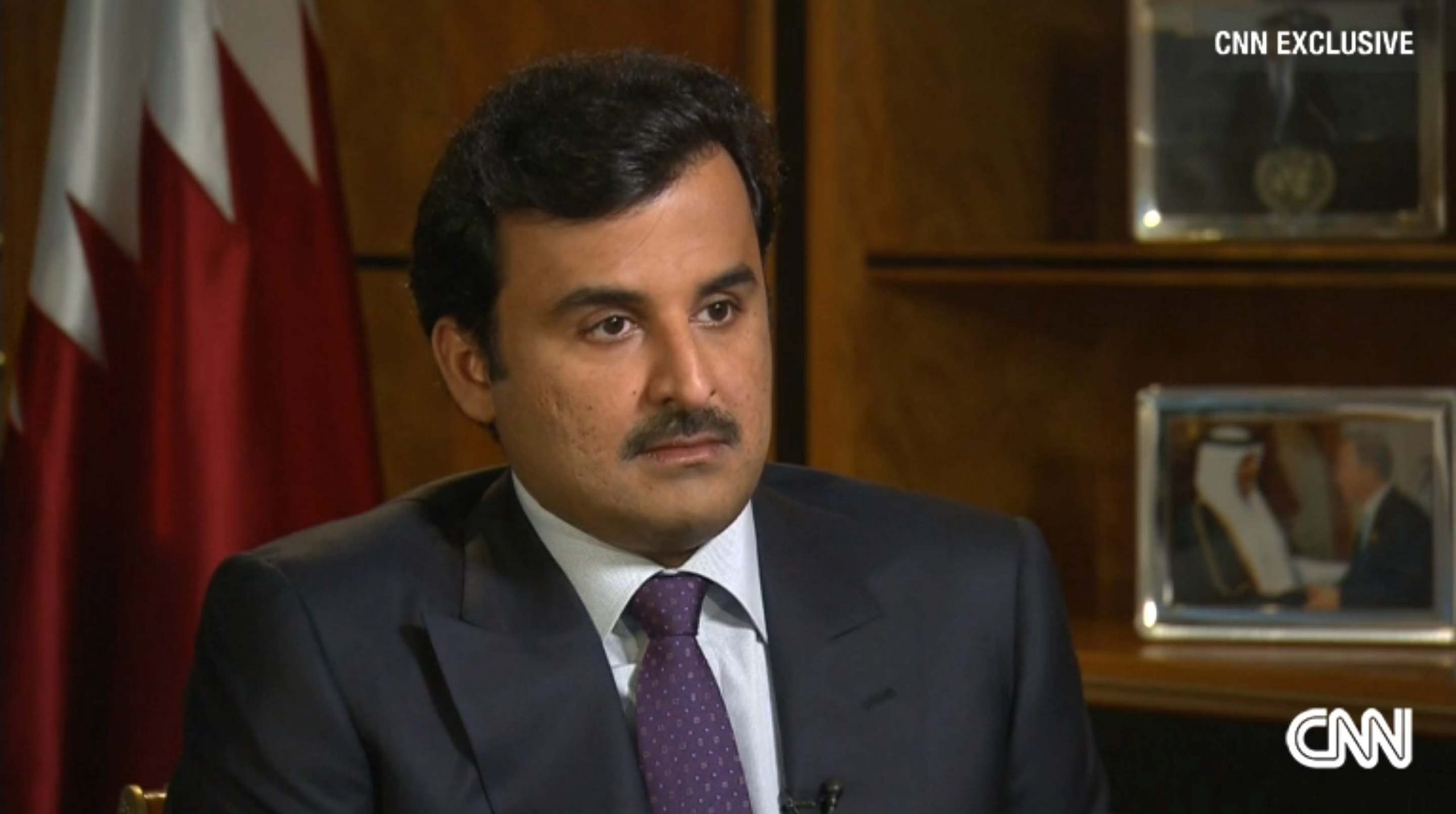
In his first television interview since becoming Emir last June, Sheikh Tamim bin Hamad Al Thani said Qatar would continue to participate in the fight against ISIL for the foreseeable future, even as he hinted at returning the country to its traditional role as a global mediator.
In a conversation mostly centered on foreign policy that aired last night on CNN, Al Thani also told host Christiane Amanpour that the conditions faced by migrant workers in Qatar was “not acceptable” and that the 2022 World Cup would be one of the best football tournaments in history.
In the interview, which was conducted in English, Al Thani also responded to accusations that Qatar either directly finances ISIL or turns a blind eye to its residents raising money for its fighters.
He said he did not accept anyone funding “certain movements” in Iraq and Syria, where Qatar recently supported an aerial bombing campaign against ISIL targets.
However, he said that Qatar and the US don’t always agree on which groups should be deemed terrorist organizations:
“We don’t fund extremists. But there are differences. Some countries and some people (think) that any group which comes from Islamic background are terrorists. We don’t accept that.”
When asked for examples, Al Thani said that Qatar views groups operating in Egypt, Libya and Syria differently than other countries.
Qatar has backed groups linked to the Muslim Brotherhood in those conflict-ridden states, which has put it in conflict with some of its allies and neighbors.
For example, the UAE – which sees the Muslim Brotherhood as a threat to its political authority at home – has supported opposing factions in Egypt and Libya, to the point that some are calling the ongoing turmoil in the North African state a proxy war between militias backed by the two Gulf rivals.
Al Thani’s comments suggest that the country is renewing its traditional foreign policy focus of being a conciliator after spending considerable resources and efforts in recent years backing specific groups in conflicts in the Middle East and North Africa.
Foreign involvement in Egypt, Libya and Syria came as the governments in those countries have faced mass uprisings in recent years.
Al Thani said the Arab Spring has caused “confusion” over Qatar’s foreign policy direction, which he called “very simple.”
“If you go back to our real foreign policy, we believe in dialogue. We provide dialogue. We believe in peace. We are a mediator … I’m not in a camp against another camp. Our country has its own foreign policy, our own way of thinking. And people should respect that …
It’s not a matter of being a friend or not a friend.”
World Cup
A week after acknowledging that there have been “problems and errors” in protecting the human rights of migrant workers in Qatar, Al Thani went further in his interview with CNN by saying the situation is “not acceptable.”
“I don’t accept it personally to see laborers, poor people, coming from other countries to come and help us develop our country and the atmosphere and the environment isn’t helpful for them.”
He added, “I’m personally hurt about the situation. I don’t accept that. Not even one Qatari accepts that.”
However, when asked by Amanpour about the exit permit system that requires expats to seek their employers’ permission before leaving the country, Al Thani said “we changed those laws” and also said “there are many laws that have been changed” and that the situation for laborers in Qatar has already improved.
While Al Thani didn’t specify the laws to which he was referring, the most significant reform to the country’s kafala sponsorship is still in draft form and is expected to be enacted toward the end of 2014 or early next year.
The new laws propose making it easier for foreign workers to change jobs and leave the country – changes that residents and human rights activists say don’t go far enough.
Separate regulations have increased the number of labor inspectors and mandated employers to deposit their workers’ wages directly into their bank accounts to ensure that they’re paid on time.
Companies operating in Qatar have recruited hundreds of thousands of foreign workers in recent years, many of which are constructing the stadiums and related infrastructure to help the country prepare for the 2022 World Cup.

Al Thani reiterated the country’s position that air conditioning technology would keep players and spectators cool both inside the stadium and in fan zones around the country.
He said Qatar intends to host the tournament during the hot summer months, but is receptive to FIFA’s consideration of moving it to the winter – “We’re ready for both.”
He also reaffirmed the country’s right to host the tournament:
“People should understand Qatar had the best bid and Qatar will provide and will do one of the best World Cups in history. And I’m sure about that.”
Thoughts?







